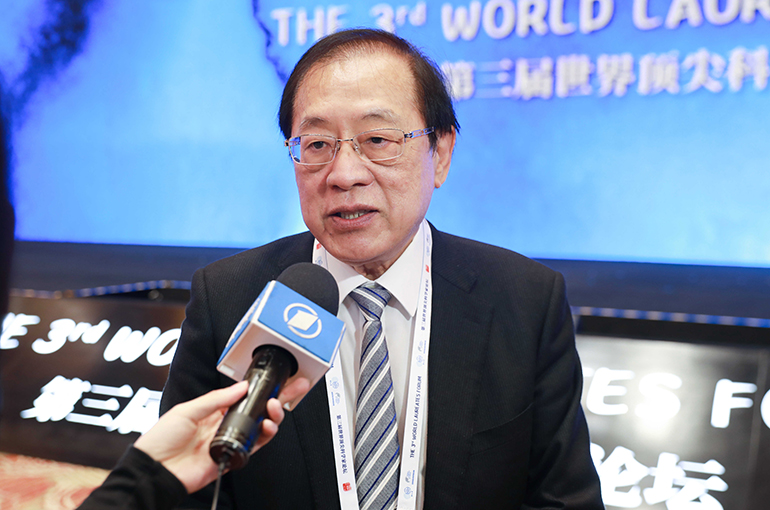(Yicai) Sept. 23 — Practical uses of quantum technology will likely appear within five to 10 years, before the creation of a universal quantum computer, according to China’s sole Turing Award winner.
China’s quantum tech sector is still in its infancy, mainly focusing on scientific research instruments and basic experiments, Andrew Yao said at the Pujiang Innovation Forum in Shanghai yesterday. But the technology is not limited to computers, as other practical uses, including for navigation and radar, are showing potential, he pointed out.
Yao, 78, was born in Shanghai and moved to the United States in 1967, aged 21. He won the Turing Award in 2000 for his contributions to the theory of computation.
The Turing Award, named after British mathematician and modern computing pioneer Alan Turing, is the highest distinction in computer science. It is presented annually by the Association for Computing Machinery for major and lasting contributions to the field.
Yao worked at several US colleges before in 2004 returning to China, where he took up a post at Tsinghua University. At the prestigious academic institution, Yao — who is also is a member of the Chinese Academy of Sciences — spearheaded the creation of the Institute for Interdisciplinary Information Sciences, which has a quantum laboratory dedicated to designing and building quantum computers.
At the forum, Yao also noted that scientific exploration should not be solely guided by industrial purposes. “Original innovation stems from the curiosity and insight of scientists, and this spirit of exploration cannot be replaced by market demand,” he said. “Nobel Prize-winning research is often driven by a dedication to unknown areas rather than a commercialization goal.”
In the past 15 years, the Institute for Interdisciplinary Information Sciences has focused on quantum computing, artificial intelligence, and cryptography, striving to achieve breakthroughs that keep pace with the world, Yao pointed out. “Now it seems that this goal has been mostly achieved,” he said.
Even though China’s AI applications are already in the world’s top tier, its talent pool in the field of basic research is lacking, Yao noted. “Cutting-edge scientific research and breakthroughs in basic theory require gathering top scientists for long-term research, a shortcoming we urgently need to address,” he said.
If China wants to keep up with global leaders in original innovation, it needs to foster a culture that supports curiosity and exploration, Yao said, adding that that requires not only funding and platforms, but also giving researchers more freedom to explore, not just pursue short-term results.
Editors: Dou Shicong, Futura Costaglione

